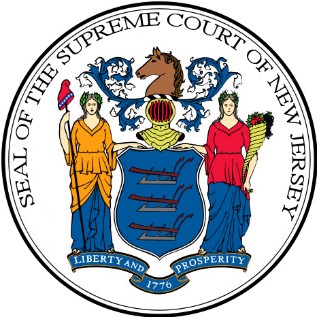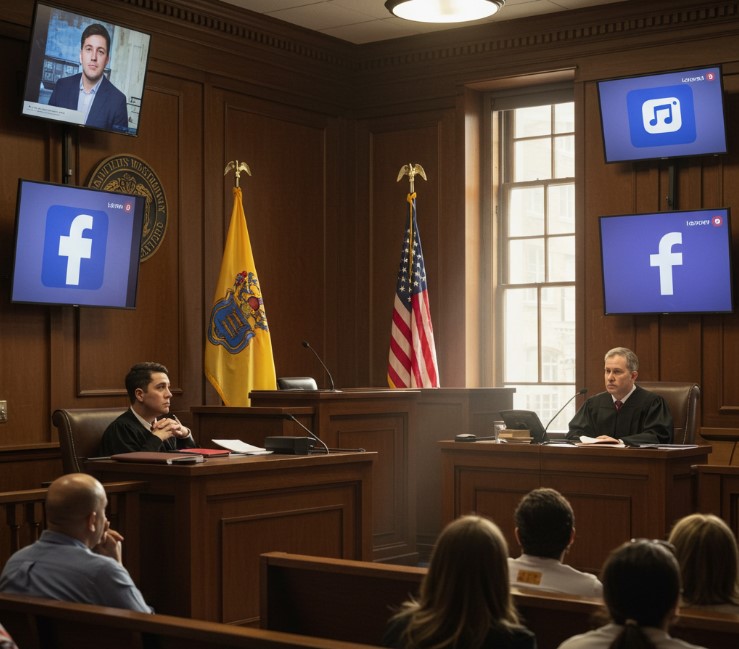An article by attorney Elizabeth M. Trottier, Esq.
On July 31, 2025, in Reuter v. Berkeley Township, Docket A-0138-23, the New Jersey Appellate Division reversed an Ocean County jury verdict in favor of Plaintiff Reuter and held that it was against the weight of the evidence and a miscarriage of justice to find that the employer committed disability discrimination and disability retaliation.
In 2002, Plaintiff Debra Reuter commenced employment at Berkeley Township as an Assistant Recreation Supervisor. With the support and assistance of the Township Mayor, Plaintiff was promoted in 2016 to Recreation Supervisor. In November 2017, she consulted with her general practitioner for the first time for symptoms of anxiety, PTSD and depression. However, Plaintiff also testified that the employer Defendants were unaware of her mental health disability of anxiety until her lawyer wrote them a letter on January 25, 2018 claiming she had “substantial psychological and physical damage” as a result of alleged religious discrimination and hostile work environment.

In February 2018, Plaintiff took leave under the Family Medical Leave Act (FMLA). When she returned to work, Plaintiff testified that her supervisor, the Recreation Director, insulted her for taking FMLA leave, stating that she was “good at taking FMLA leaves” and that he would make comments about her medication use. Her duties were changed and instead of organizing Township recreational events, she was folding t-shirts and cleaning closets. Plaintiff attributed that to retaliation for her lawyer’s letter and her FMLA leave.
In May 2023, after an 8-day trial, the jury found in favor of the Plaintiff on claims of hostile work environment due to disability and retaliation and awarded her $1.6 million. On August 23, 2023, the trial court denied Defendants’ motion for a new trial, and Defendants appealed. At the time of the appeal, Plaintiff remained employed at the Township Recreation Department.
On appeal, as to the issue of hostile work environment for disability discrimination, the Appellate Division reversed the jury verdict in favor of Plaintiff finding that it was based on a manifest lack of inherently credible evidence and culminated in a clearly unjust result.
Citing Victor v. State, 203 N.J. 383 (2010), to prove a hostile work environment claim under the LAD, it is the plaintiff’s burden to prove that (1) she is in a protected class; (2) she was subjected to conduct that would not have occurred but for that protected status; and (3) the conduct was severe or pervasive enough to alter the conditions of her employment. Id. at 409.
Although Plaintiff could prove the first element given her mental health diagnoses, the Appellate Division found that the evidence did not support the second element of a prima facie claim of hostile work environment.

The record below was devoid of evidence that the Mayor of Berkeley Township, who was an individually-named defendant, ever discriminated or retaliated against Plaintiff. In fact, the Mayor did not know about her disability until she filed her complaint alleging disability discrimination. Additionally, the individually named-defendant Township Business Administrator testified that the Plaintiff never told him she felt she was being discriminated against on the basis of disability, and in fact, he was unaware of her disability until her lawyer’s letter or when the lawsuit was filed. The Appellate Division further found that the taking of FMLA is not a protected activity under the LAD, and that FMLA has its own anti-retaliation provision, and Plaintiff did not seek relief under that provision.
The Court vacated the judgment awarding Plaintiff’s damages and remanded for a new trial to determine Defendants’ liability, if any.
If you are a company or a professional faced with a complaint of hostile work environment, discrimination, or retaliation, and you seek assistance with any of the aforementioned, please contact the Employment Law Group of the law firm of Davison Eastman Munoz Paone, P.A. at 732.462.7170 or [email protected].
THIS IS FOR INFORMATIONAL PURPOSES ONLY AND DOES NOT CREATE AN ATTORNEY-CLIENT RELATIONSHIP. THIS DOES NOT CONSTITUTE LEGAL ADVICE.











